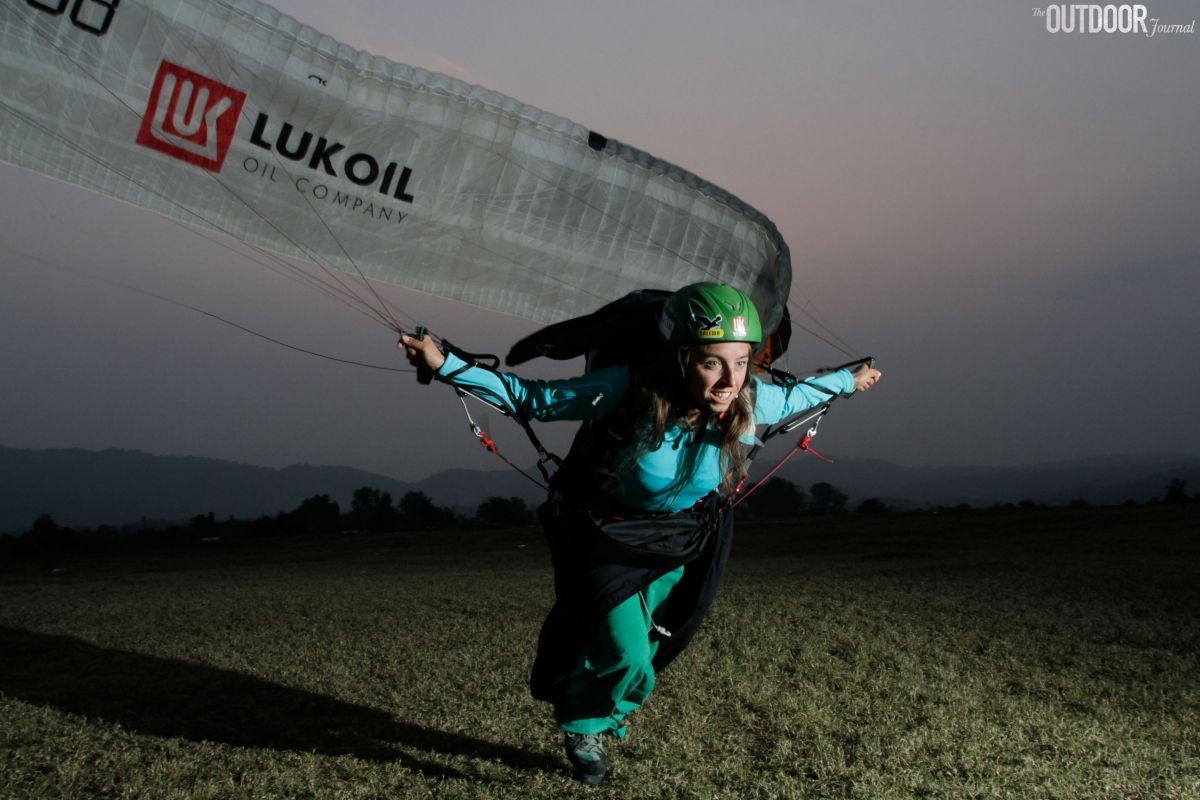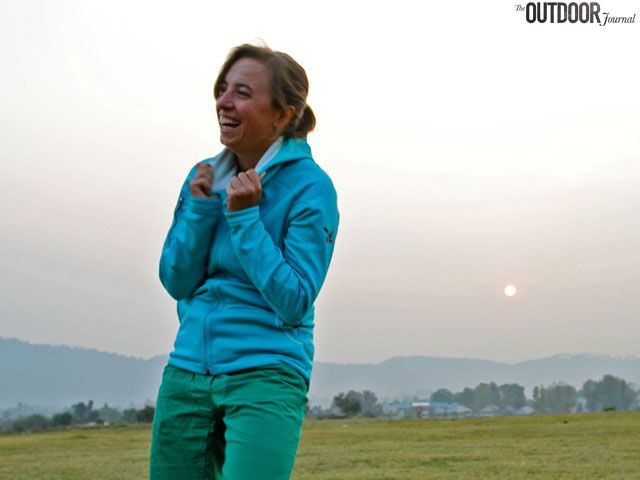Piolets d'Or Announces the "Significant Ascents" of 2023
This list of 68 climbs is effectively a "long list" used to select nominees of the prestigious alpine award.

TOJ: How did you get into paragliding?
KB: It was quite accidental. I was trying to compete in other disciplines earlier. I used to ice skate for nine years and played tennis for four years. Then one day my mother came up with this idea, "Maybe you should try paragliding!". Then I did my first tandem flight but I did not enjoy that. I felt like - why should I spend so much money doing something that boring? Somehow I started to travel with such guys… we have airfields near Warsaw airport and we used to paraglide there. Then I did a proper course. After my first flight I totally fell in love. My first solo flight was so amazing that I wanted it all -- fly thermals, do cross-country. I wanted to be in the national team, compete internationally, participate in world championships, etc.. straight ahead after just three days of flying. And everyone around me was like - "Yeah… right!"
[vimeo http://vimeo.com/80873797]
My first instructor still says, "I did not really believe it then but I am really proud of you."
TOJ: From there, you are now the world champ in 2013. How do you feel? Is it like you have accomplished an ambition or do you have more?
KB: The world champion title is a dream for any athlete in any discipline. We all work very hard to be on top one day but I never dreamt of being the world champion. Now when I was at the world championships I focused on giving my best and when I did, everyone was happy. When I stepped on to the podium I felt the heat - "Oh my god! This is where I wanted to be." But now I am quite chilled about it. It is something very important but It is not like my career is going to end. I see so many new opportunities and I progressed so much in the past one year to remain on top.
TOJ: What are the new opportunities now that you are a world champion?
KB: You progress, you learn new skills, new mental techniques and set yourself new goals.
TOJ: Do you feel like you have other competitors very close to you that you have to keep fighting for your place? Seiko Fukuoka is catching up, for example.
KB: Seiko, Nicole, Daria fly with weaker gliders compared to mine but still fly pretty strong. It is so hard to compete with them and Seiko is quite good. She proved it in the Super Finals this year in January. It is fun though. It motivates you to get better and better and if you don't have concurrence, you lose your motivation to get better.

TOJ: How do you feel about the Pre-World Cup qualifier that took place here recently?
KB: I was really surprised during this Pre-World Cup because the organization level was really good. Debu was the meet director and he has flown in many World Cups and other competitions. So, I think he knows what every competitor needs and what makes them happy.
TOJ: What do you have to say about the Pre-World Cup In India compared to other countries? Was it of the same level, was it close or is there still a long way to go?
KB: I have seen many poorly organized paragliding world cups, so comparatively this one was really good. And this place is amazing.
TOJ: Tell us about the prize money? There is a huge discrepancy between between mens' and womens'.
KB: You know, it's a lot tougher for guys to win overall. It's not a big fight between girls. Still, for guys it's so much harder. The really deserve higher prize money.
TOJ: But, internationally do you feel because you are a woman you have to fight harder?
KB: It's an aero-sport and gender does not play a big role. The only problem is that we are small in number. Definitely the mental aspect is different between guys and girls.
TOJ: You have also been a skier, snow boarder and an instructor. Do you make some money out of it? How did you get into these sports?
KB: Actually, I became a ski instructor around the same time I got into paragliding. In the beginning, I was spending more time in the mountain as holidays. Slowly it became more and more important in my life as it became part of my everyday salary. Because now I am a sponsored athlete, I don't need that money. But during off-season, I try learning new skills. I love teaching, it gives me positive energy.
TOJ: What about teaching paragliding?
KB: For now I don't want to because it makes you stop flying. If it is a good day then I might have to stay on the ground, with a radio, teaching people instead of flying myself. But, I am thinking of becoming an instructor and a tandem pilot some day. I think I can teach people new things which they normally wouldn't learn in other schools.
TOJ: Do you want to talk about your sponsors and name a few?
KB: It is very hard to get sponsors. They look for returns but we athletes really can't go forward without this support from outside. This is my 15th competition this year and I have flown more than 200 hours and it is not possible to work and fly at the same time. My current sponsors have followed and liked me, so it has been great to have them around for three years.

TOJ: What is Klaudia like at home? What does she do when she is not flying?
KB: What's home! In winter I go to the Alps and work by editing videos and photos. I ski, do my workout, read a lot and do my mental training. I also try free riding some difficult slopes and enjoy. I love the outdoors and don't see myself indoors much.
TOJ: Did you ever go through a bad phase?
KB: There was a time I was not performing to my level, not getting to the podium. I even thought of quitting paragliding and then I realized - I cant live without paragliding.. because I love it too much.
TOJ: Have you had any close calls? Any accidents?
KB: Not really. In my 14 years I have had just one rescue. My focus is always to work on safety as much as possible.Place: Bir Billing, Himachal Pradesh, India
2nd best newsletter in the universe